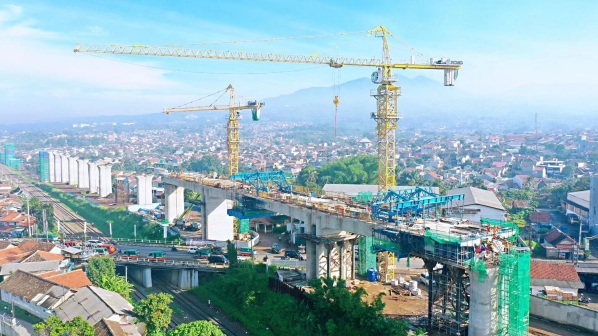Japan, which was previously outbid by China to construct the line, rejected Indonesia’s invitation for a consortium of Japanese investors to build the extension, saying it will focus its involvement in the separate Jakarta - Semarang - Surabaya conventional rail project.
Mr Luhut Pandjaitan, Indonesia’s minister for investment, subsequently offered China the opportunity to build the extension during a meeting with Mr Wang Yi, China’s foreign minister. The Indonesian government says that it is also open to investment in the project from other countries.
The Bandung - Surabaya extension, which will run via Yogyakarta in southern Java, is intended to improve the economic viability of the Jakarta - Bandung project. It was hoped Japanese involvement in the project would accelerate work, which has suffered serious delays. The Jakarta - Bandung line was originally due for completion in 2019 but has since been delayed until the second half of this year.
The 350km/h Jakarta - Bandung line will serve four primary stations: Halim in Jakarta, Karawang in West Java, and Walini and Tegaluar in Bandung, and is expected to cut end-to-end journey times from three hours to 45 minutes.
The consortium building the $US 6bn project, PT Kereta Cepat Indonesia China (KCIC), announced that work on the project was 63.9% complete at the end of 2020, despite disruption caused by the Covid-19 pandemic.
The Jakarta - Surabaya mainline project, which will run west-east in the north of Java, has an initial investment of $US 4.3bn and construction is expected to begin in 2022 and finish in 2025. Indonesia and Japan signed an agreement for the project in 2019.
For detailed data on infrastructure projects from around the world, subscribe to IRJ Pro.

